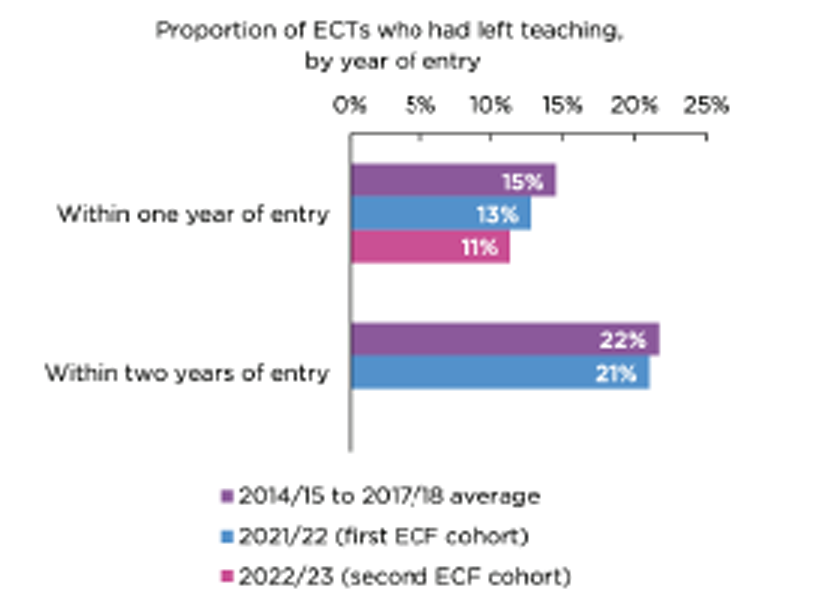How a school-led partnership works to create a sense of place and belonging to support the recruitment and retention of ECTs
About Camden Learning
- Camden Learning is an innovative and successful area-based, school-led partnership
- All Camden Schools – secondary, primary, special, whether maintained or academy – have chosen to be members of the partnership
- Camden Learning is a delivery partner for the ECTE
- A specific challenge in our locality, central London, is retention of teachers due to the cost of accommodation and travel
Much recent research (e.g. Mind the Engagement Gap IMPACT Ed May 2025; EEF Belonging as an Attendance Strategy 2025), primarily in response to the crisis in attendance, is pointing to the need to emphasize a sense of belonging in our schools; for pupils to feel noticed and included, for there to be a greater emphasis on building relationships. We believe that this intentional community building approach is also critical for teachers new to our schools and the profession too.
One of our goals, in creating our ‘enhanced’ local ECTE programme has been to create opportunities that ensure teachers enjoy teaching and develop a commitment to continuous improvement.
What do we do in Camden?
In the first week of term, ECTs attend a brief ‘welcome to teaching and Camden’ zoom.
Then, three weeks into term, we host an in-person welcome event for all ECTs and mentors. This is after-school and free refreshments are provided. Key senior members of Camden and ‘graduate’ ECTs speak briefly, but the emphasis is on connecting with others and promoting positive relationships.
Thereafter we deliver the core materials from our lead provider but add additional face-to-face sessions; during Thursday afternoons for primary, and as twilights for secondary to acknowledge cover challenges. Broadly, primary have 6 half day sessions a term (including the core sessions) and secondary have 4.
At the end of the two years we gather our ‘graduates’ together, along with their mentors for another celebration, again, in a high-end location. This runs run 4.30-7pm in July. We toast their success and thank them for all they have done.
What are the key ingredients in our programme?
- All our core ECTE modules for ECTs and mentors are delivered face to face. We find this significantly increases engagement.
- The primary programme is led by an ex-headteacher who herself was an ECT (probationer!) in Camden several years ago, and the secondary by an experienced secondary leader, seconded one day a week, funded by Camden Learning.
- Prior to the Early Career Framework, the ex-headteacher led a National Teaching School which organised a local Camden NQT programme for over 10 years in collaboration with a secondary colleague.
- The continuity of facilitator means that a coaching relationship can develop within the sessions.
- Primary Schools support the additional bespoke sessions and contribute additional funding because they see the impact.
- We have strong triangulation with our Appropriate Body.
- We ensure there is only one administrator point of contact with schools (for training, registration and AB) to minimise communications from different bodies.
- Lead practitioners from schools, notably those with mentoring ECT experience, co-facilitate sessions. This has become a pathway for our NPQ graduates.
What are some examples of additional sessions we offer?
- During the module on ‘climate for learning’, we add sessions on ‘creating a classroom of readers’ and ‘creating a classroom of writers’.
- In the cognitive science module, we add a session on securing number facts
- At the start of the year we offer a very practical additional session for primary called ‘Classroom organisation and workload management’
- The ECTs hear from SEN specialists and Educational Psychologists
- Early Years ECTs have bespoke sessions with our Early Years Lead
- Essentially, all our additional sessions throughout the year are practical and led alongside the strong practitioners from our schools.
What is the impact?
- Our retention rate after both 1 and 2 years is higher than national. Over our first three years it averages 90% retention after two years. 2025 data is promising
| 2025 | Staying in Camden | Teaching beyond Camden | Leaving teaching |
| Primary Y1 | 93% | 7% | 0% |
| Secondary Y1 | 85% | 15% | 0% |
| Primary Y2 | |||
| Secondary Y2 |
- This compares with the national below

- Having the continuity of facilitator means relationships are formed and a sense of being part of something strengthened.
- We are able to counsel if things are hard; sometimes to stay in teaching or to suggest a move of school within the borough.
- It is the start of professional pathways – talent spotting right from the start and connecting with opportunities
Things to consider
- To what extent does the culture in your school/trust/local authority value and prioritise early career teachers? They are our Year 7! How they are welcomed, valued and noticed directly impacts on not only their capacity to manage the challenges of teaching, but also their commitment to their wider community.
- As a delivery partner, could you look at your delivery model to ensure the vast majority of sessions are face to face?
- Is there sufficient continuity in your facilitator model?
- Could you add additional sessions that enrich learning opportunities when the ECTs focus and drive is so much on improving practice?
